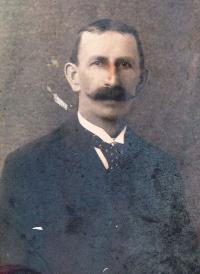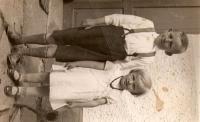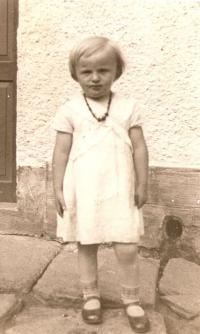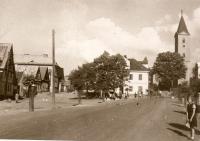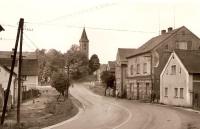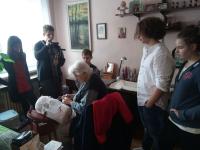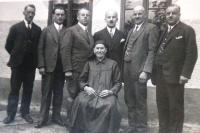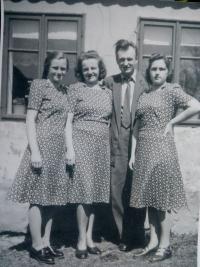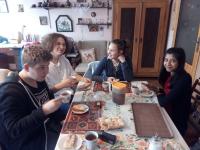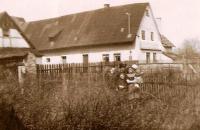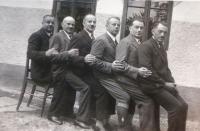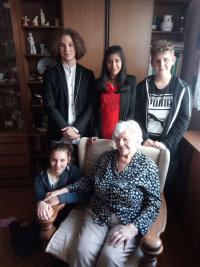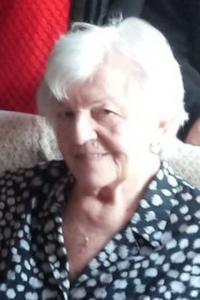It was not liberation for us after the war, hell started for us
Berta Růžičková was born July 17, 1931 in a village near Sokolov in a German family. After the signing of the Munich Agreement, she thus experienced the departure of Czech inhabitants to the country’s interior, and conversely, after the war she witnessed the deportation of Germans to Germany. Most of her relatives and friends were deported, but she and her parents and siblings had to stay because they were ‘indispensable:’ her father worked as a foreman in a mine. Berta went to see her relatives in the assembly camp in Sokolov before they were eventually deported and she experienced bullying from the guards. She married in 1951, and she moved to Nejdek and learnt to speak Czech fluently.

